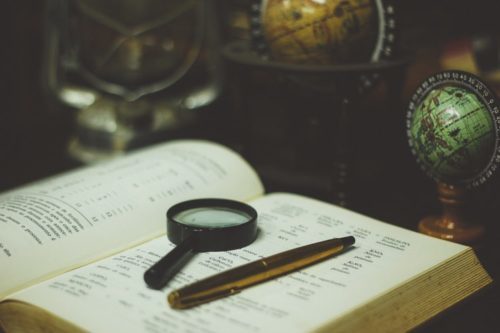
It all began in the 1940s…
 March 6, 1948 – LPA FOUNDED
March 6, 1948 – LPA FOUNDED
The Louisiana Psychological Association was founded by the Psychology Departments of both the Louisiana Teachers Association (LTA) and the Louisiana College Conference (LCC) for the purposes of advancing psychology as a science, as a profession, and as a means of promoting human welfare. The primary goals of LPA as an organization, reflecting the values of each respective founding group, were to promote psychology as both a profession and an area of scientific study. LPA pursued these goals first by seeking to recruit new members from a variety of applied and academic settings, as well as setting its sights on legislative action to increase the legitimacy of psychology as a profession. Please see our comprehensive timeline of elected officials who have served LPA since 1948.
 1950s
1950s
In the 1950’s LPA added 2 specialty committees to reflect it’s growing memberships concerns. In 1951, the Professional Problems committee was created in order to help working psychologists navigate concerns arising in their practices. In 1955, The Scientific Affairs committee was created for the purposes of supporting researchers advancing psychology as an academic pursuit and prestigious science. Both committees also provided LPA members with resources for peer consultation, increasing the network of collaborative support within the LPA community.
In 1954, LPA also began focusing on legislative opportunities in earnest, with then-President Dr. Thomas W. Richards leading the drafting of bill proposals related to psychologists licensed to practice independently, outside of the regulations from the state medical board.
 1960s
1960s
July 16, 1964 – Psychologists Achieve Legal Status through Licensing
In 1964 there was a virtually unanimous agreement by all 124 LPA members to actively push for full independent practice licensure during the annual legislative session. This process involved preparing a formal bill to submit (prepared by Dr. Ronald S. Pryer), selecting bill introducers in both the Louisiana House of Representatives and Senate, networking with influential citizens and organizations for lobbying support, and encouraging the individual efforts of “all psychologists” to contact their local representatives in support of this bill. After a campaign of frequent communication between LPA and legislative officials, psychologists were granted legal status and the ability to practice independently with the passing of the Psychology Licensing Law (Act 347) on July 16, 1964. In 1968, LPA was granted further legitimacy when the IRS recognized it as a 501 status (professional nonprofit) organization.
The 1960’s also saw many additions to LPA’s special committees, with Public Affairs, Legislative and Social Issues, Psychological Evaluation, and Insurance groups all added within this decade.
 1980s
1980s
In the 1980s LPA cemented the legitimacy of psychology as an independent healthcare profession in Louisiana by supporting legislation removing the mandate that psychologists receive medical physician consultation in order to practice (Act 31, HB 458). During this time period, LPA also began the Southern Psychologist publication. The regional journal ran from 1982-1987 and earned positive comments from such well-known psychologists as Hans Eysenck, Raymond Cattell, Richard Gorsuch, and Luciano L’Abate.
 2010s
2010s
The 2010s saw an increased interest and active participation from LPA in various legislative activities, with the organization attending the first ever Legislative Forum between lawmakers and other mental health professional organizations in 2014. Over the course of the decade, LPA showed consistent efforts to further distinguish psychology as a profession and protect the ability of psychologists to continue practicing independently (e.g., supporting bills allowing psychologists to make emergency admissions and establishing a separate board for the regulation of non-psychologist behavior analysts; opposing bill proposals related to dissolving the state psychology board and transferring the regulation of medical psychologists to the state medical board).
LPA also advocated for Louisiana psychologists through various investigations and demonstrations related to professional and regulatory issues such as insurance reimbursement rates, establishing school psychology as a licensed specialization, the right to nominate psychology board members, and, perhaps most notably, opposing the addition of the controversial EPPP-2 test to the licensure process.
Outside of legislation and regulatory efforts, LPA was also involved in numerous community improvement efforts, with many LPA members serving as advisors or consultants for state or national programs related to worker’s compensation, Medicaid integrated assessment, forensic decision-making, human trafficking prevention, preventing sexual harassment and discrimination, bullying awareness and treatment, and the LA children’s trust fund. LPA also expanded the scope of support it offers members, adding many new committees focused on topics such as Diversity, Rural and Telehealth concerns, a Speakers Bureau, and the Committee for Colleague Assistance.
 2020s and Beyond…
2020s and Beyond…
As LPA moves into the next decade, its membership has grown and its involvement in legal, professional, scientific, and community endeavors continues to increase. With luck, these improvements will help support the original mission placed on the organization at its inception: the advancement of psychology as a science, as a profession, and as a means of promoting human welfare.

